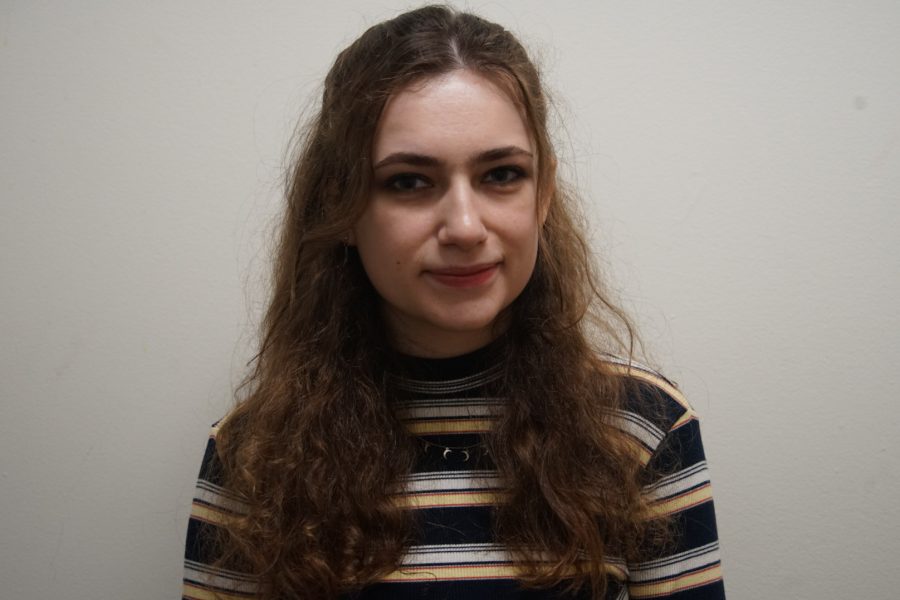There comes a point in the life of the studious young artist where it seems like every adult in your life tells you not to go to art school. You hear it from business-oriented, pseudo-savvy relatives who tell you that an arts degree won’t get you a job, or at least not a job that pays you enough money. But you hear it from the other end of the spectrum as well; artistic mentors and creatives will also tell you that you shouldn’t waste your money, that art school is an oxymoronic education in a subject that doesn’t need to be conventionally taught.
Young and confused students don’t know who to listen to. They don’t feel equipped to defend themselves against disapproving remarks from more experienced adults. I have been there myself, before and in the midst of going to college for a degree in the performing arts. I have been on the receiving end of pessimistic remarks sent over family email chains, and I’ve had more than one arts teacher I looked up to tell me that going to college for drama and writing would “mess up” my creative abilities by introducing complicating factors like marketability and employment.
So, here’s where I help prepare my fellow young artists for their next phone call with a doubtful parent or debate with a skeptical peer. As someone who has made the decision to go to art school despite this advice, the education is undoubtedly worth it, as many people who have attended art school in recent years will tell you. Though I am sick of hearing the word “networking” in every art school conversation, the biggest benefit really is exposure to a vast world of collaborators, teachers and peers who have their own artistic lenses and can help you parse out your own. I can testify that receiving an artistic education has made me feel more legitimate in my creative endeavors, and strengthened my ability to take risks in whatever I am creating.
As someone who has yet to graduate from art school, I can’t tell you whether that job that makes any money actually exists, but I can testify that the job prospects can definitely begin cropping up while you’re still in school if you’re working hard and making connections. And here’s some concrete evidence to forward in your family email chain: the Strategic National Arts Alumni Project, a survey which polled over 90,000 arts alumni from various educational institutions in recent years, found 70% of surveyed alumni spent most of their work time in an artistic setting, and only 3% of the former art majors were unemployed. Granted, over 50% of those alumni reported suffering from student debt — this raises a separate but very legitimate concern that art school is increasingly becoming an experience primarily reserved for the uber-privileged elite. But if you can go, the odds of getting a job in the creative field are in your favor.
There seems to be some sort of cultural shame surrounding the creative person entering an academic setting. Tales of educational inadequacy are often relayed with heroic sentiment in the artistic world. Perhaps you’ve heard that your favorite writer, musician or painter dropped out of college, or was expelled, or didn’t even make it through high school. Why are these anecdotes so often told with encouraging chagrin in the artistic realm? Even Harvard University professors have perpetuated the myth; in 1998, established art critic and Harvard Professor Peter Schjeldahl published an article entitled “Why Artists Make the Worst Students.” Schjeldahl’s sophisticatedly worded argument doesn’t entirely disavow art education, but it is ultimately a problematic justification for the over-romanticized, isolated and tortured artist narrative that has pervaded U.S. culture for decades.
The sentiment within this statement and many like it is that real artists do not require an education, or that they are somehow too creative to conform to one. I see no reason why a creatively minded person wouldn’t benefit from the abundance of knowledge and creative conversation that comes with higher artistic education. And a study recently published in the American Behavioral Scientist journal utilized SNAAP data to discuss how even creatively-minded people working in occupations traditionally considered non-creative can employ their art school sensibilities outside of jobs in the arts.
The truth is that there’s no such thing as being too creative for any occupation, artistic or not. The idea of artists as a separate cult of people from those who make up the typical population is antithetical to a more overall artistic, creative structure of the world. And whether you call yourself an artist or not, that’s a world we all should want.
“The Art School Report” is a column about the trials and tribulations of art school and the New York City art scene at large. Johanna aims to document the experiences and opinions of Tisch students and the terrifying thought of graduating into the world with an arts degree.
Opinions expressed on the editorial pages are not necessarily those of WSN, and our publication of opinions is not an endorsement of them.
A version of this article appeared in the Monday, April 22, 2019, print edition. Email Johanna Stone at [email protected].























































































































































